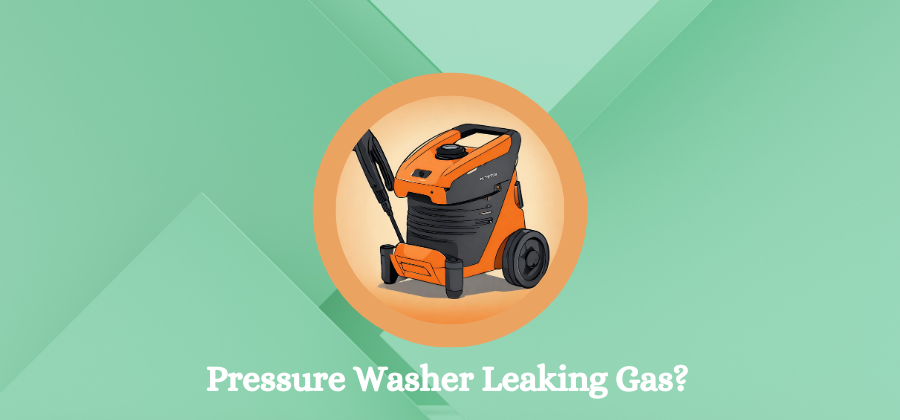
When your trusty pressure washer starts leaking gas, it can be a cause for concern. Not only can gas leaks affect the performance of your pressure washer, but they can also pose safety risks. In this comprehensive guide, we will explore the various aspects of pressure washer gas leaks, how to troubleshoot them, and crucial safety measures to follow.
Key Takeaways
- Leaking gas in a pressure washer is a serious issue requiring immediate attention for safety and performance concerns.
- Distinguish between electric and gas models when addressing potential gas leaks.
- Troubleshooting steps include confirming gas presence, prioritizing safety, and inspecting the carburetor.
- Prevent gas leaks through regular maintenance, using quality gasoline, and proper storage.
- Adhere to manufacturer guidelines for operation and maintenance to minimize gas leaks and other issues.
- Swift attention to gas leaks, following troubleshooting steps and prioritizing safety, ensures a prompt resolution.
- Regular care and safety measures maintain the pressure washer in top condition for effective cleaning.
What Not to Do When Your Pressure Washer is Leaking Gas
Before we dive into troubleshooting, it’s essential to understand what actions to avoid when you suspect a gas leak in your pressure washer.
While we primarily discuss gas pressure washers, it’s worth noting that electric pressure washers don’t have gas-related issues. Therefore, if you’re experiencing a gas leak, it’s crucial to differentiate between the two types of pressure washers.
Gas pressure washers use gasoline as fuel, making it important to address any gas-related issues promptly. Let’s delve into the troubleshooting process.
Troubleshooting Your Leaking Pressure Washer
Identifying and resolving the source of a gas leak in your pressure washer is essential. Let’s break down the troubleshooting process into actionable steps.
Make Sure It Is Gas
Before you jump to conclusions, ensure that the liquid you’re seeing is, in fact, gasoline. Sometimes, other fluids, like oil or water, can create a similar appearance.
Signs it might be gasoline:
- Characteristic Smell: Gasoline has a distinct odor that is easily recognizable.
- Color: Gasoline typically has a light brown or amber color.
- Flammability: Gasoline is highly flammable; exercise caution around suspected leaks.
Make Sure You’re Safe
Safety should be your top priority when dealing with gas leaks. Here’s what you should do to protect yourself:
- Ventilation: Ensure you’re in a well-ventilated area to prevent inhaling harmful exhaust fumes.
- No Open Flames: Keep all sources of open flames or sparks away from the area.
- Gloves and Eye Protection: Wear protective gear, including gloves and eye protection.
Remove the Carburetor
A common source of gas leaks in pressure washers is the carburetor. Here’s how to safely remove it for inspection:
- Locate the carburetor: It’s typically found near the fuel tank and has a fuel line connected to it.
- Turn Off the Ignition: Ensure the pressure washer is turned off, and the ignition system is disabled.
- Disconnect the fuel line: Carefully disconnect the *fuel line* from the carburetor.
- Inspect for Damage: Examine the carburetor for any visible damage or loose components.
- Clean and Reassemble: If no damage is found, clean the carburetor components thoroughly and reassemble them.
How To Avoid Pressure Washer Gas Leaks
Prevention is often the best approach. Here are some tips to avoid gas leaks in your pressure washer:
Regular Maintenance
Perform routine checks on your pressure washer, including inspecting the fuel tank, fuel lines, and carburetor.
Maintenance Checklist:
- Inspect fuel lines: Look for any signs of wear, cracks, or loose connections.
- Check the fuel tank: Ensure the *fuel tank* is secure and free from leaks.
- Examine the carburetor: Clean and inspect the *carburetor* regularly to prevent clogs or damage.
Use Quality Gasoline
Ensure you’re using high-quality, clean gasoline to reduce the risk of contaminants causing blockages.
Choosing the Right Gasoline:
- Octane Rating: Opt for gasoline with an octane rating recommended by the manufacturer.
- Avoid Ethanol Blends: Ethanol can attract moisture and cause fuel system issues; choose ethanol-free gasoline when possible.
Proper Storage
Store your pressure washer and gasoline in a cool, dry place away from direct sunlight or extreme temperatures.
Storage Tips:
- Fuel Stabilizer: Consider using a fuel stabilizer if the pressure washer will be stored for an extended period.
- Empty the Tank: Before storage, run the pressure washer until the fuel tank is nearly empty to minimize fuel-related issues.
Follow Manufacturer’s Instructions
Always adhere to the manufacturer’s guidelines for maintenance and operation. Proper operation reduces the risk of gas leaks and other issues.
Conclusion
In conclusion, a gas leak in your pressure washer is a matter that requires immediate attention. By following the troubleshooting steps mentioned above and prioritizing safety, you can identify and rectify the issue promptly.
With proper care and attention, you can keep your pressure washer in top-notch condition, ready to tackle any cleaning job effectively.
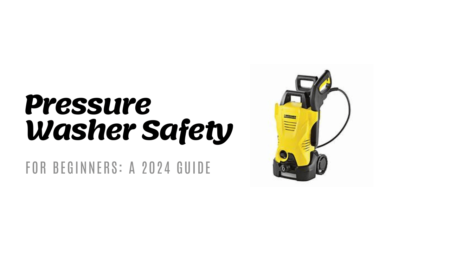
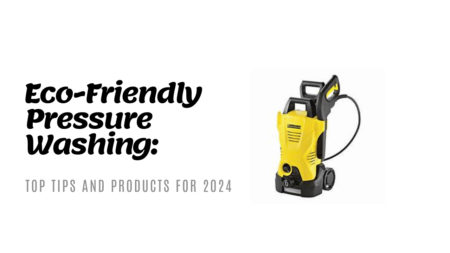
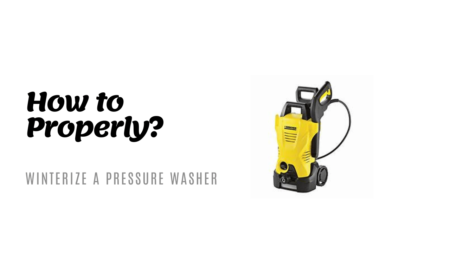
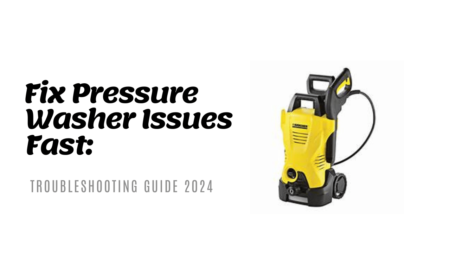
![Pressure Washing Regulations: What You Need to Know [Updated 2024]](https://pressurwasher.com/wp-content/uploads/2024/05/Minimalist-Tutorial-Event-YouTube-Thumbnail-2024-05-31T224409.854-450x253.png)
![Ultimate Guide to Pressure Washer Maintenance [2024 Edition]](https://pressurwasher.com/wp-content/uploads/2024/05/Minimalist-Tutorial-Event-YouTube-Thumbnail-2024-05-30T230638.695-450x253.png)